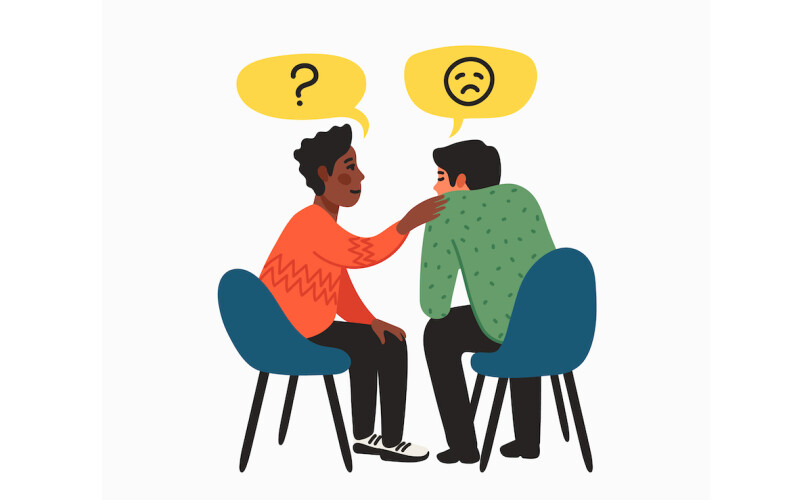Can you tell if somebody is struggling with their mental health?
There's a growing awareness in society about the impact of mental health problems. This has been particularly true in relation to the lockdown caused by the Coronavirus pandemic.

A lot of people will have struggled with the isolation, fear of contagion, loss of purpose, and living in a way that restricts connection with loved ones. There is talk in the media about making counselling available to more people and it is apparent that the ongoing impact of this virus will continue for many years.
Recognising that people are struggling with their mental health is important and allows everyone to talk more freely about problems such as anxiety and depression. But, would you know, just by looking at somebody, whether they have a common mental health condition? Do you know which of your friends or family is experiencing anxiety or depression?
Just like many physical illnesses, you can’t always tell when somebody isn’t OK.
Wouldn’t it be easy if people had a sign on their forehead highlighting their struggle? Everybody would know and we could take time to check on the people around us and ask how they are doing.
Unfortunately, it’s not that easy to recognise that a friend, family member, acquaintance or work colleague is struggling. Who do you know who might be struggling with their mental health?
It could be:
- The extrovert, who always craves the spotlight.
- The quiet person in the corner who doesn’t make eye contact.
- The parent who makes time for everybody else but doesn’t consider their own needs.
- The person in the queue who is angry.
- The person in the queue who is quiet.
- The person who says, “I’m fine”.
- The person with immaculate hair and clothing.
- The person who can’t be bothered to wash.
Confused? Basically, there is no obvious way to measure somebody’s emotional well-being by just looking. A lot of people have developed ways of disguising their anxiety or depression, so that those around them are totally unaware. The only way to be sure whether somebody is struggling is to ask. And then ask again.

People often say they are fine when they aren’t. Asking again gives somebody the space to think about their answer rather than responding with an automatic, well-practised response. It also shows that you are genuinely interested and really care.
Would you know how to respond if somebody isn’t OK and starts to talk to you about it? You might feel tempted to rescue them and make things better. However, the best thing to do is just listen. You might be the first person that they have spoken to.
Being able to talk about what is troubling them will help them to get a better understanding of their problems and may help to lighten their load. There is plenty of truth in the saying, “A problem shared is a problem halved.”
Giving somebody the space to talk can make a huge difference to their emotional well-being. It allows the other person to recognise that somebody values them enough to care. It may give them the confidence to talk to others about their struggle and reach out to professionals for help if they choose to. Just 10 minutes of your time can make a difference to somebody else’s day.
If you are concerned about the person's immediate safety, you might want to support them to make an appointment with their GP, self-refer to A&E, or contact the Samaritans on 116 123.
If you or somebody you know is struggling with poor mental health, you might want to access counselling. This is generally available free of charge through the NHS or (if you don’t want to wait as long), privately for a fee.
If you are looking for a private counsellor, you can see my profile for more information about me. Or you can search for a therapist on a directory such as Counselling Directory or the BACP to find a verified counsellor near you.

Find a therapist dealing with Anxiety
All therapists are verified professionals






